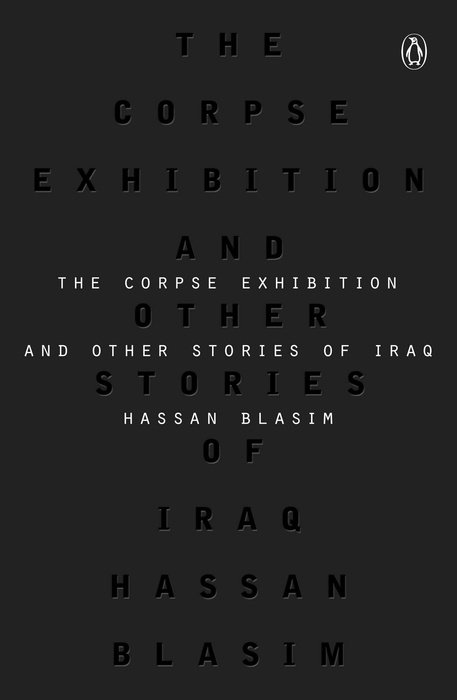To begin, I ought to include a disclaimer: I am a glutton for dark and difficult reading. But no matter your tolerance for discomfort, The Corpse Exhibition: And Other Stories of Iraq by Hassan Blasim is an astounding work of literature.
Iraq conjures up so many varied images and emotions for me: ancient Babylon, a desert landscape, a cuisine I’ve barely tried but think I like, and, of course, oil and war, but I’m ashamed to say my knowledge of Middle Eastern literature is practically null. I came to this story collection with no real concept of what to expect, and what a shocking, magnificent entry into the Iraqi literary world it was for me. Blasim, hailed by The Guardian as the finest Iraqi writer living today, took me from a magical world of jinni and angels to the harsh realities of his war-torn nation.
The haunting, often terse prose (rendered so deftly by translator Jonathan Wright) was unlike anything I had read before. The stories fascinated, repulsed, and moved me; they are at once beautiful and grotesque, made up of the kinds of things that break your heart and set your blood to boil. They are, as so aptly described on its back cover, “a pageant of horrors . . . shot through with a gallows humor that yields an unflinching comedy of the macabre.”
There is a startling simplicity to the way in which Blasim addresses senseless violence and cruelty, but the author and the characters are anything but indifferent: their indignation and exhaustion are a constant current underlying the horror. Each story is engrossing and powerful in its own way, and there is not a single one that I didn’t like.
The first story (from which the book takes its name) left the greatest impression. Before dipping into its pages, I took the title to be strictly metaphorical, but was shaken to learn that it’s actually quite literal. The idea of corpses displayed as art is undeniably repulsive, but in the context of a place ravaged by violence because of both internal and external forces, the concept gave me pause and the real metaphor took shape. The story is almost entirely in the form of a monologue from an individual who justifies murder as art. He calls into question the value and the absurdity of life on “this grindstone of screaming and dancing” and in the process offers a strangely compelling perspective on the horror and nonsense inherent in acts of cruelty while highlighting the importance and futility of the pursuit of beauty amidst it all. In just a few pages, Blasim indicts, celebrates, and mocks the state of human existence with an eye for the Iraqi experience.
Despite its grotesquerie, The Corpse Exhibition is accessible and not without hope. It is an odd thing to say that a book is equally difficult and compulsively readable, and yet, here is a story collection that is exactly that—sometimes magical, sometimes terribly, terribly real, and through it all, a window into a people and a place that, particularly in our Western canon, has little opportunity to let its voice be heard.
Elaine Wilson works in the Editorial Department of Touchstone Books.





